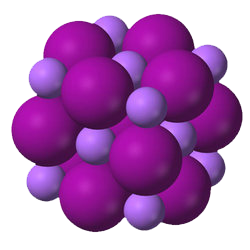Potassium Citrate PKD




Empirical Knowledge is Knowledge Grasped from Within
We with cystic organs are very lucky. We have within our grasp a true knowledge of what it is like living within a body with cystic organs. We have a verifiable pool of experience of empirical knowledge. This is our collective group understanding of PKD.
Potassium Citrate Worked in the PKD Model
"The GFR [kidney functioning] of rats with PKD that consumed potassium citrate dissolved in water from one month of age was normal at six months of age, while those of their counterparts on water alone was . . .one third of normal.
Long-term [potassium citrate] treatment extended the average life span of rats with PKD from 10 to 17 months [Potassium Citrate almost doubled the potassium citrate PKD life span]. . . Rats with PKD show abnormal renal handling of citrate and ammonia.
Citrate salts have an alkalinizing effect, preserve GFR [kidney functioning] and extend survival."
—From the research of GEORGE A. TANNER and JUDITH A. TANNER
Department of Physiology and Biophysics, Indiana University School of Medicine, Indianapolis, Indiana, USA
George A. Tanner retired in 2009.
More articles from George Tanner who discovered the positive healing
relationship between potassium citrate and ADPKD.
This was the first time that conclusive scientific evidence showed in the PKD model, those fed [potassium citrate] an alkalizer in their water not only lived almost twice as long lives, but did not go onto kidney failure and their cystic kidneys never enlarged to become the typically huge polycystic kidneys of PKD. Whereas the PKD model counterparts NOT fed an alkalizer [potassium citrate] died at 10 months, developed kidney failure; and did go on to develop huge polycystic kidneys.
This lecture was given to a standing room only crowd filled with PKD'rs, backed up all the way down the hall. We were all so eager to hear this PKD conference lecture. It was a never before seen turn out for a PKD lecture. Here at last was the answer to the long asked question.
I have PKD, what can I do?
For many this was an epiphany. We are grateful to have available the detailed potassium citrate clinical research undertaken by the Tanners. It is through their work that we with PKD have come to learn the benefits of remaining alkaline. The Tanners performed additional precise experiments that led to the discovery that potassium alone helped PKD and citrate alone helped PKD, but by far and away the most benefit was obtained from maintaining alkalinity.Citrate is utilized by the kidneys as energy. Sodium citrate and potassium citrate were equally effective as alkalizers; calcium citrate was less so. In the normal progression of PKD towards end stage renal disease, potassium rises. Many doctors oftentimes prescribe a favorite old standby, sodium bicarb, as an inexpensive alkalizer. However due to the inherent nature of PKD, this will lead to an increase in kidney stone formation, especially for PKD'rs. We already have a 20% increased risk of developing kidney stones. Taking sodium bicarbonate or baking soda, multiplies this risk. Ask your nephrologist if sodium citrate might prove beneficial for you. Not only is potassium or sodium citrate, or alkalinity beneficial for PKD, there are some clinical trials that show alkalinity also helps lower blood pressure and improve bone density and diminish recurrent kidney stone formation.
Does Diet Help?
Urine Alkalization Facilitates Uric Acid Excretion 2010
In Japan they used two types of diets, one of meats (acidify urines); the other fruit and vegetable rich, converts the urine to alkaline. This was a 5 day consecutive study. They collected all day urines from participants and found that after three days urine pH reached a steady state. Researchers conclude that alkalization of urine by eating nutritionally well-designed alkaline foods are effective for removing uric acid from the body.
Uric acid is elevated in PKD.
Support for Less Salt, More Potassium 2013
The idea that reducing salt intake -- and increasing potassium intake -- can lower blood pressure and improve disease outcomes has received additional support from three systematic reviews.
Diet vs Alkalizers in Chronic Kidney Disease 2013
Conclusion:
One year of fruits and vegetables or NaHCO in individuals with stage 4 CKD yielded eGFR that was not different, was associated with higher-than-baseline PTCO, and was associated with
lower-than-baseline urine indices of kidney injury. The data indicates that eating fruits and vegetables improves metabolic acidosis and reduces kidney injury in stage 4 CKD
without producing hyperkalemia.
Saving Failing Kidneys
This is a very interesting Malaysian newspaper article. From this article one can learn that for most of the citizens of Malaysia there are very few treatment alternatives to save their their failing kidneys and according to this article, dietary changes is good place for one to start. Those who can make the switch to all vegetarian proteins seem to have a much easier time with maintaining their health.
